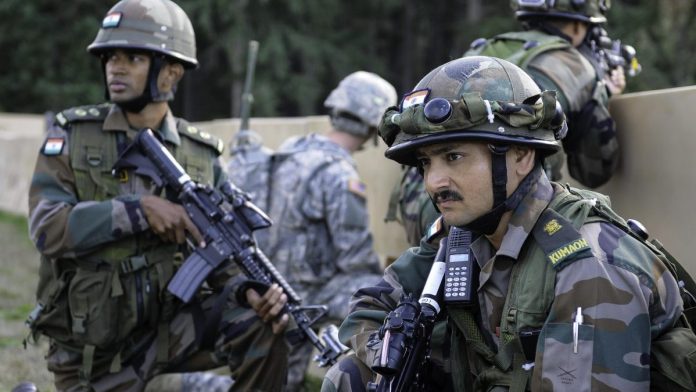At the border where every decision determines life and death, soldiers applying diplomacy instead of war-fighting instincts will be disastrous.

recent article in ThePrint suggests that soldiers with qualities of diplomats who are stationed along the India-China border are avoiding skirmishes. The article confuses ‘maturity’ in dealing with day-to-day situation at the border with ‘diplomacy’.
“A nation’s power to impose its will and to achieve its national objectives emanates from its instruments of national power.” This is an oft-repeated sentence in every diplomatic and military college.
The instruments of national power are political, diplomatic, economic, and military — generally in that order of preference. The latest technological and communication advancements have forced the western countries to consider them as diplomacy, information, military and economics, or DIME.
In this ever-changing world, the ‘information’ in DIME could be replaced with ‘intelligence’ — which is nothing but sifted, analysed and assessed information — to achieve strategic advantages.
Some contemporary US strategists derive power by focussing on MIDLIFE — military, information, diplomatic, law enforcement, financial and economic resources.
Also read: Why soldier-diplomats are key to maintaining peace along India-China border
New ideas
Although innovation and technology must go hand in hand, experimenting any new idea at the borders will be like playing with the lives of well-trained soldiers.
The zone where every decision translates into life and death of thousands of soldiers, one can only hope that sanity prevails and the soldiers remain as steadfast as they should be at the border.
In the Army, we keep harping upon an adage, “Somewhere someone is training to kill you”. While operating in such an environment, if the soldiers apply diplomacy instead of their well-trained war fighting instincts, the consequences will be disastrous.
Confusion galore
Both diplomacy and military are different professions with differing qualities ingrained during training and later to perform certain specific tasks.
The tasks, especially of the military, should never be confused with diplomacy. The synergising of diplomacy and military as instruments of national power can be achieved through Defence Attaches (DAs) in embassies and diplomatic missions.
The diplomats will be happy to have more hands to perform their task. However, the soldier will remain utterly confused.
Also read: Indian Army’s approach to electronic & cyber warfare is nowhere as evolved as China’s PLA
BPMs and flag meetings
India has two very difficult neighbours. They both are particularly unreliable, untrustworthy and pathological liars.
The atmosphere during Border Personnel Meetings (BPMs) is not always hunky-dory.
The Chinese are fiercely aggressive in claiming territory and always point out transgressions. They point out every small road construction and infrastructure development, but do not concede to any points put forth by the Indian Army.
The Chinese, at almost all BPMs and flag meetings, claim territorial transgressions by Indian donkeys. It is worth noting that a wild sanctuary exists between India and Tibet in the eastern parts of Ladakh.
The Pakistanis, on the other hand, prefer to talk about Indian movies and Indian actresses married to Pakistanis.
Both countries always scuttle the matter they should be discussing in the meetings.
The Indian Army has always found itself without intelligence on the other side due to lack of equipment. The sealing limit of our drones is much less than the mountainous region the Indian Army is told to guard.
Also read: America’s Pakistan policy is a farce and will hurt India
Territorial claims
There are many unresolved territorial claims between India and China, between India and Pakistan as also between India, China and Pakistan.
The Shaksgam Valley, which is part of the Pakistan Occupied Kashmir, was ceded by Pakistan to China in 1963 but occupied by People’s Liberation Army recently as reported exclusively by ThePrint.
The soldier should never be tasked to be diplomatic especially when huge territorial claims remain a great irritant in our relations.
There are only two types of soldiers on the battlefield – the good and the dead.
Col (Retired) Vinayak Bhat served in the Indian Army for over 33 years. He was a satellite imagery analyst for more than two decades and served in high altitude areas of J&K and North East. An alumnus of NDA, Pune, he was a mountaineer during his young days, climbing peaks like Stok Kangri and Nun Peak.
Read ThePrint’s razor-sharp editorial take on the news of the day. In just 50 words
